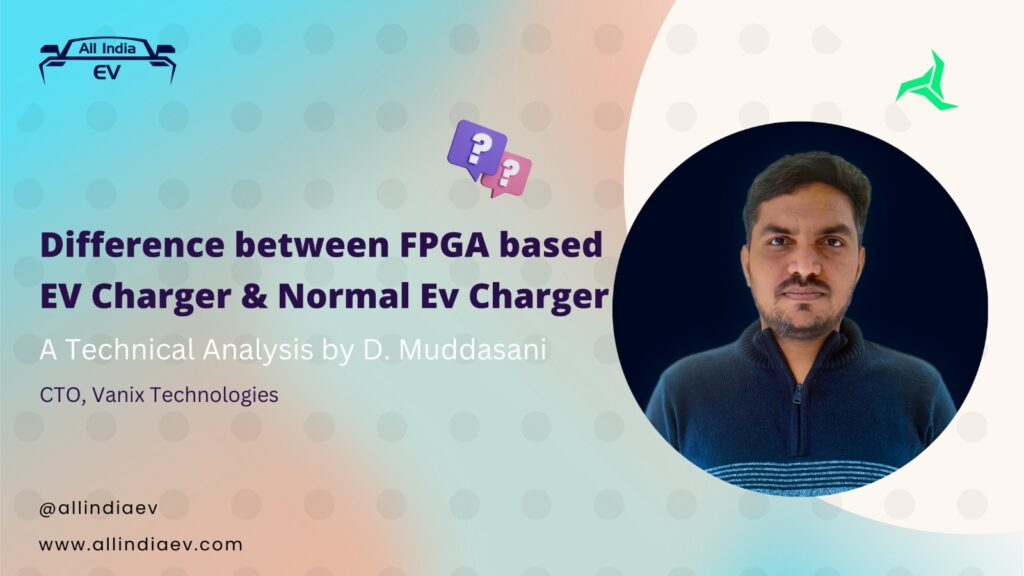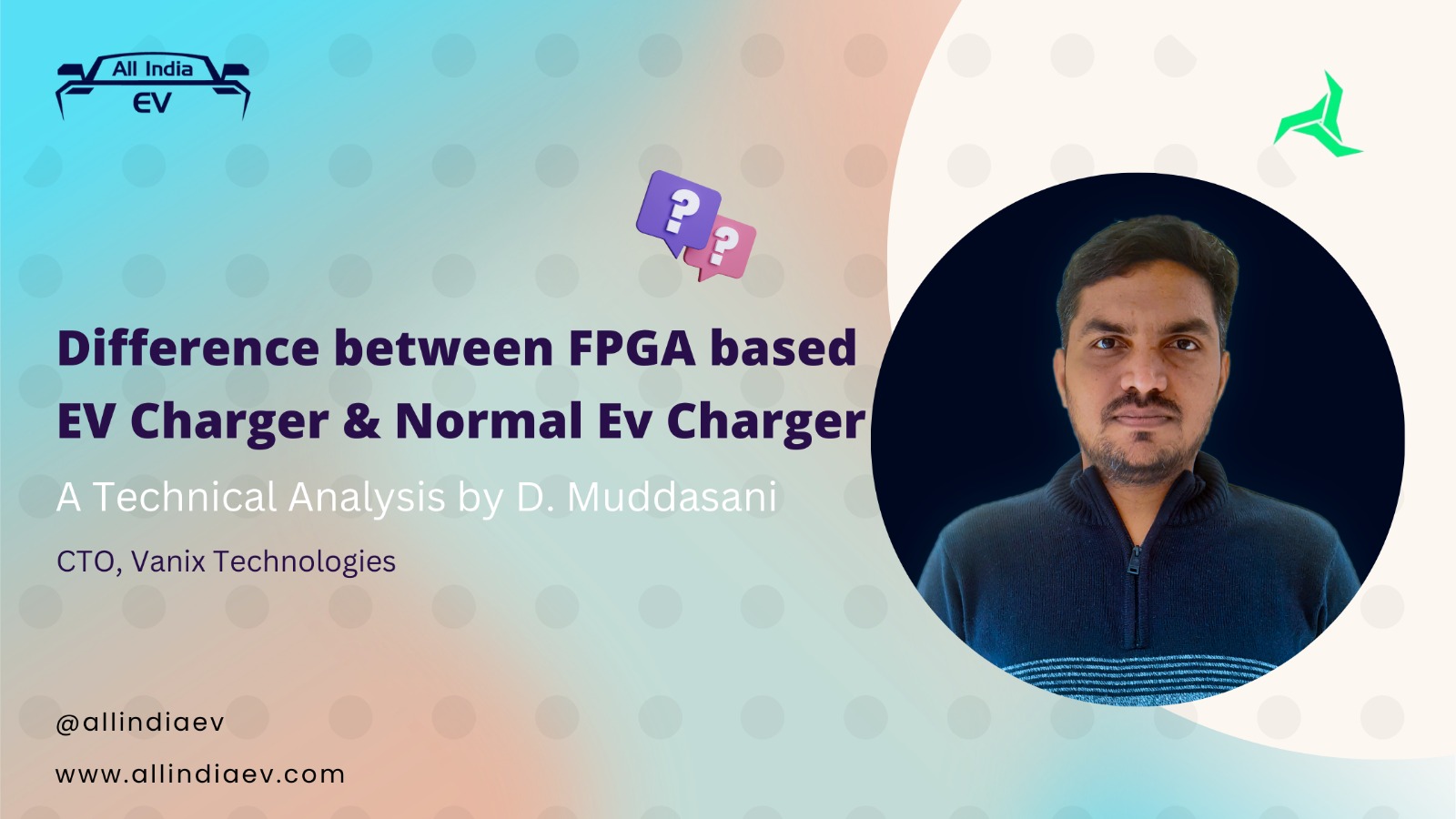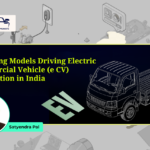
FPGA-based EVCharger & Normal EVCharger
As the world races towards a sustainable future transportation, the transformation of Electric Vehicle (EV) charging infrastructure stands as a critical frontier of innovation. At the heart of this evolution lies a distinct departure from traditional charging paradigms towards the adoption of FPGA-based solutions. These cutting-edge technologies herald a new era in charging infrastructure, redefining standards of performance, scalability, and adaptability.
This editorial embarks on an in-depth exploration of the profound differences between conventional EV chargers and their FPGA-based counterparts, illuminating the revolutionary potential and transformative impact of FPGA technology on the future of electric mobility.
Enhancing Upgradability, Scalability and Reconfigurability:
Thus a single charging system consisting of an FPGA can cater two two-wheelers, three wheelers and four wheelers using a multi-gun EV charging system. A Technical Analysis FPGA-based EV chargers offer unparalleled upgradability and scalability. Unlike conventional chargers, which often necessitate hardware replacements for upgrades, FPGA-based chargers leverage hardware reconfigurability through Hardware Description Language (HDL).
The utilization of HDL empowers FPGA-based chargers to adapt to evolving standards and protocols with ease. By programming the FPGA fabric, developers can implement custom logic tailored to specific requirements, thereby optimizing performance and functionality. This dynamic reconfigurability ensures that FPGAbased chargers can efficiently accommodate emerging standards and protocols, ensuring that chargers remain at the forefront of technological advancements without requiring extensive hardware overhauls.
Multi-Gun Functionality Made Simple:
Unlike the current EV chargers in the market, the FPGA-based chargers excel in simplifying multi-gun functionality. Through FPGA-based architecture, chargers can efficiently manage multiple charging ports, optimizing resource allocation and ensuring consistent performance across all channels. This streamlined approach not only enhances user experience but also maximizes charging station efficiency, catering to the growing demand for multigun charging solutions in urban environments.
Advanced Encryption and Secure Authentication:
Security is paramount in EV charging infrastructure, and FPGA-based chargers offer advanced encryption and secure authentication mechanisms to safeguard user data and transactions. By leveraging pure FPGA fabric on top of ARM cortex processor capabilities, these chargers can implement robust encryption algorithms and authentication protocols, mitigating security risks and ensuring data integrity throughout the charging process.
Enhanced Performance and Low Power Consumption: FPGA-based chargers boast superior performance attributes, owing to their optimized hardware design, efficient resource utilization and parallel processing. Furthermore, these chargers exhibit low power consumption, contributing to environmental sustainability and cost-effectiveness. This combination of enhanced performance and reduced power consumption positions FPGA-based chargers as optimal choices for future EV charging infrastructure.
Well-Developed Ecosystem and Connectivity:
The well-developed ecosystem surrounding FPGA technology facilitates seamless integration with existing EV infrastructure. This fosters interoperability and compatibility across diverse platforms and networks, ensuring smooth operation and efficient communication within the charging ecosystem. FPGA-based chargers leverage connectivity features to enhance network integration and communication capabilities. With support for protocols such as Ethernet and CAN bus, these chargers can seamlessly integrate with Smart Grid systems, enabling dynamic power management and grid optimization. Additionally, FPGA-based design optimizations contribute to reduced power consumption, making them environmentally friendly and cost-effective solutions for EV charging infrastructure.
Benefits of combined Multicore Processor and Pure FPGA Fabric:
By harnessing the processing power of ARM Cortex processors and the versatility of pure FPGA fabrics, FPGA-based chargers achieve unparalleled performance and flexibility. ARM Cortex processors handle control and management tasks efficiently, while FPGA fabrics enable real-time processing and customizable logic implementation, ensuring optimal performance and adaptability in diverse operating environments.
Reduced Latency of Processing and Cost Considerations:
FPGA-based chargers exhibit reduced latency of processing, thanks to their optimized hardware design and efficient resource utilization. This translates into faster charging times and enhanced user experience. While initial investment costs for FPGA-based chargers may exceed those of traditional chargers, the long-term benefits far outweigh the upfront expenses. The scalability, upgradability, and efficiency offered by FPGA-based chargers result in lower total cost of ownership over their lifecycle, making them prudent investments for EV charging infrastructure.
Remote Monitoring Solution for BMS Monitoring and EV Tracking by Vanix Technologies:
Vanix Technologies extends its leadership in the EV domain with its solution for remote monitoring of BMS and EV tracking. This offering enables real-time monitoring of Battery Management Systems and EV tracking, empowering stakeholders with actionable insights into the health of EV batteries along with location services leading to reduction in EV downtime by 30% and increase in battery life span by more than 25%.
Through seamless integration of their telematics devices and cloud platform further enhancing the transition towards sustainable transportation.










